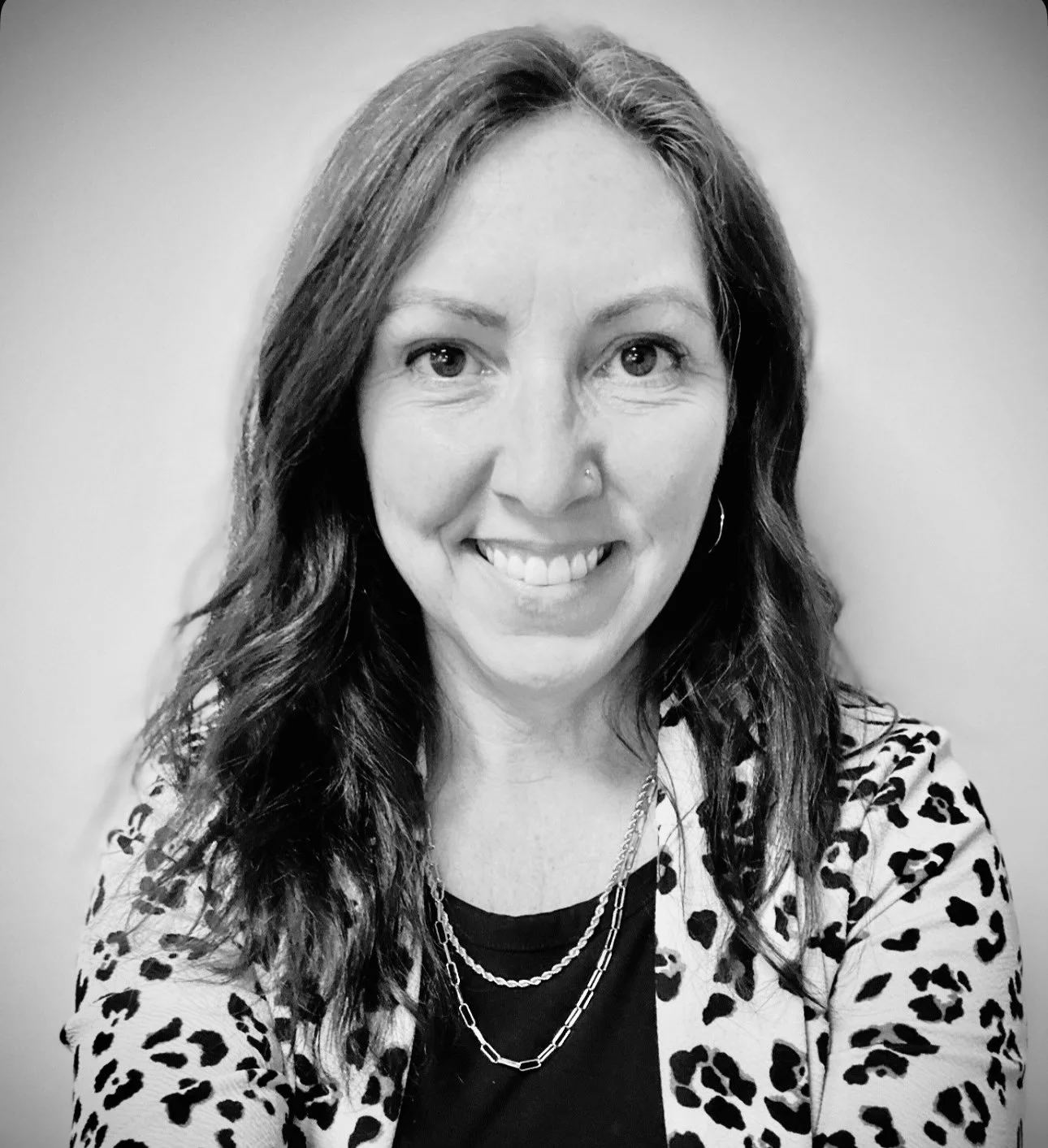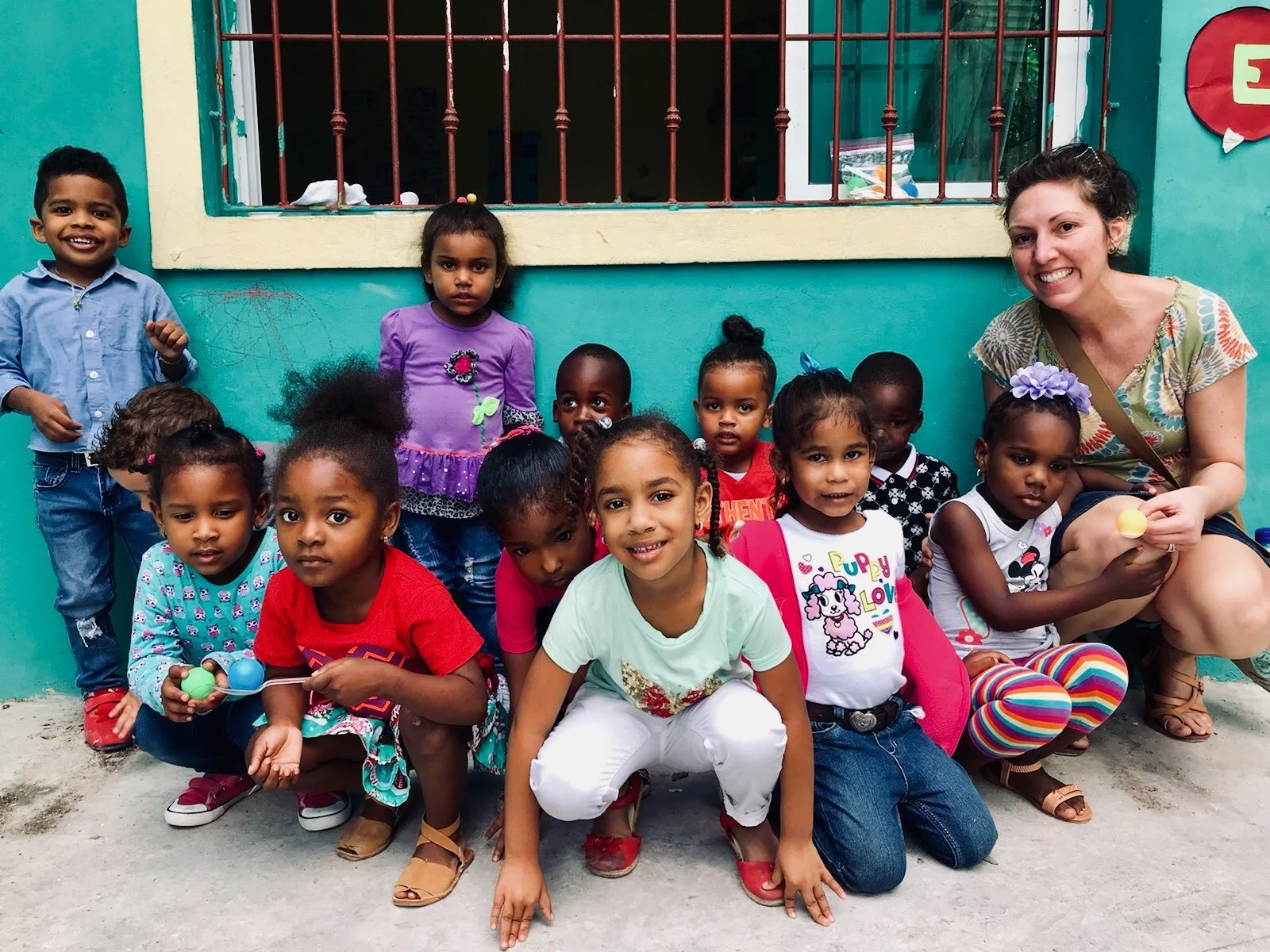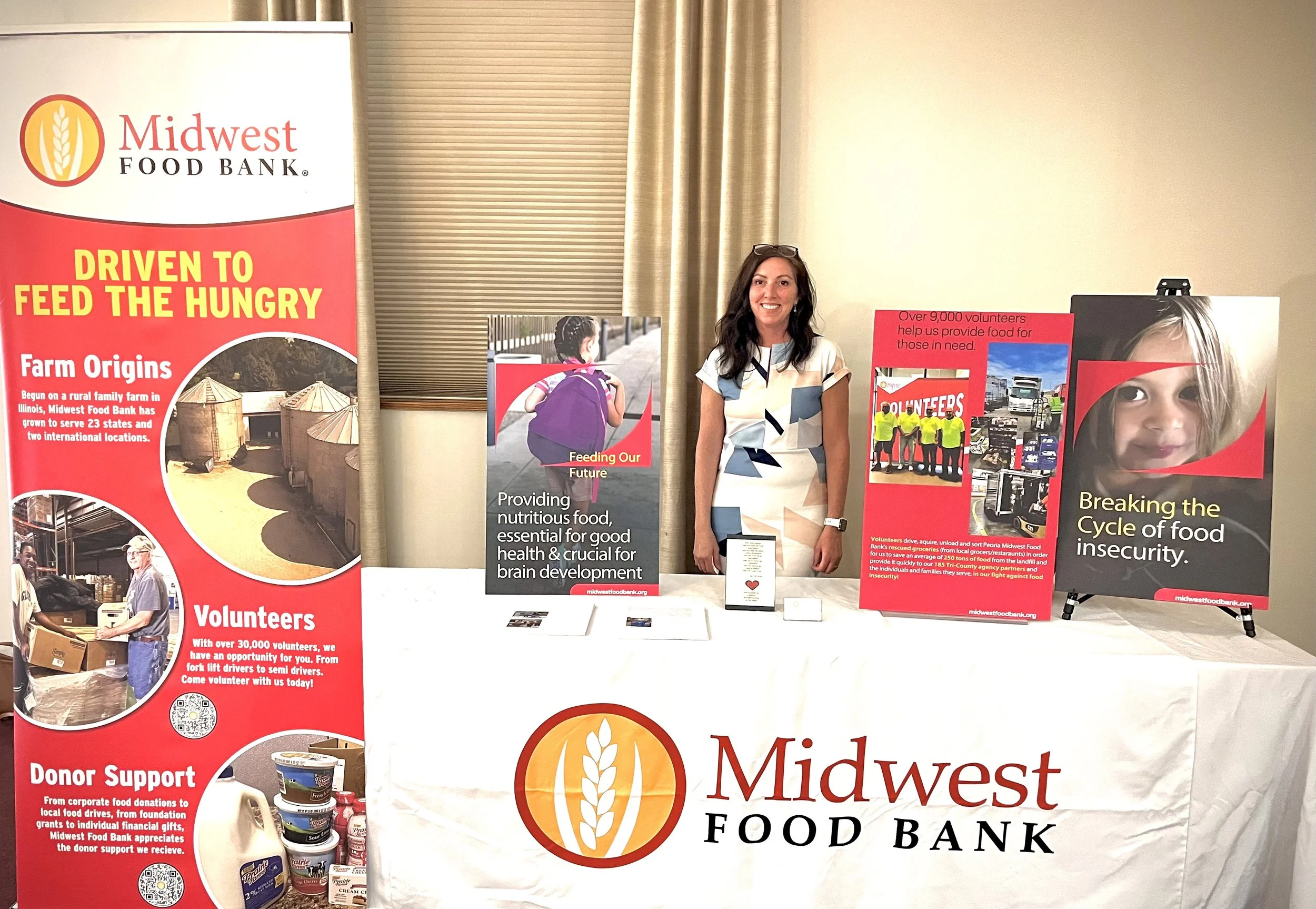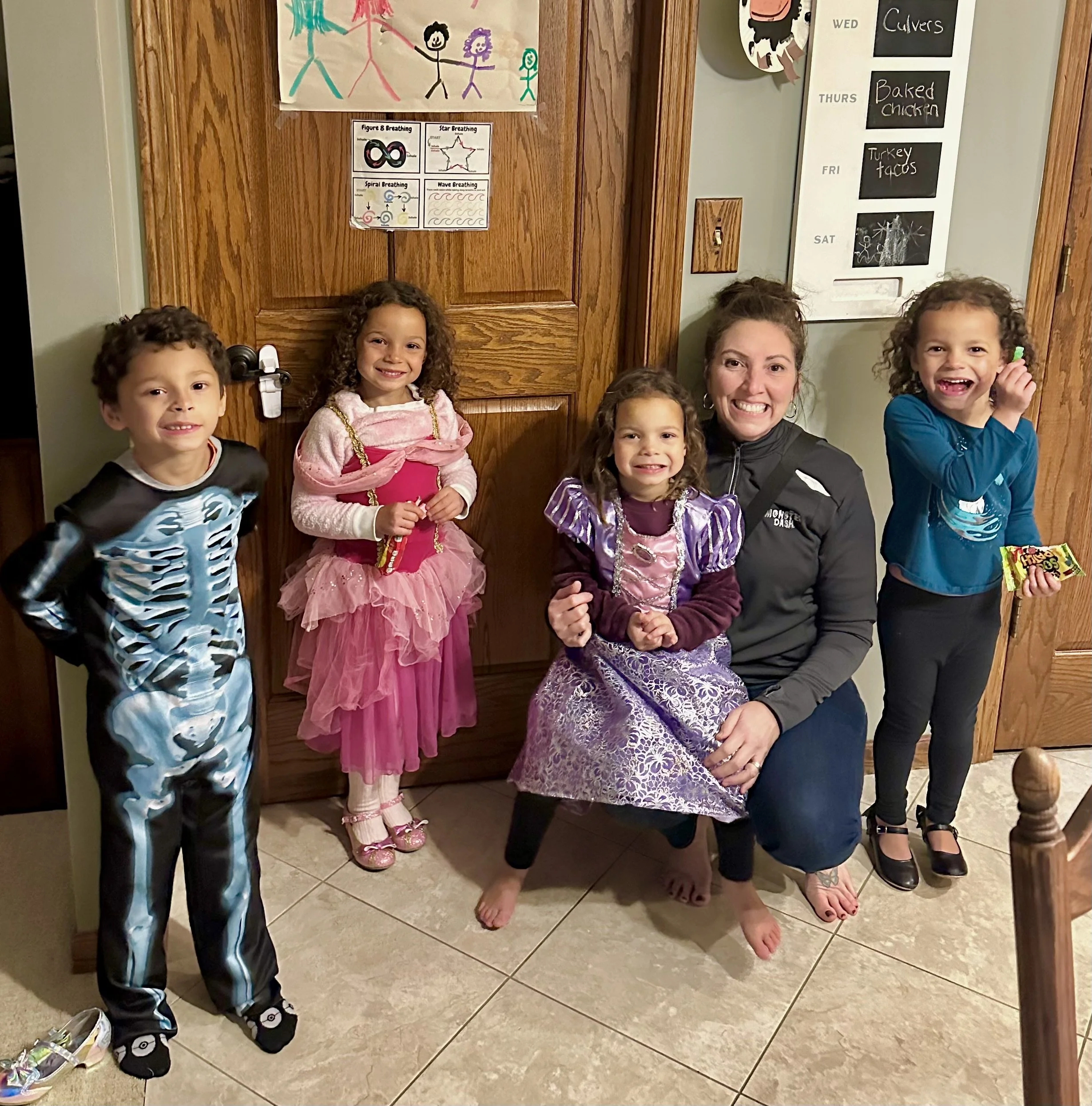Freedom in an Unexpected Calling
Christa had her life mapped out: a loving marriage, children to raise, and a faith that felt as natural as breathing. But when her mother died at fifty-one and infertility shattered her dreams of motherhood, she built the biggest steel door imaginable between herself and God, posting a "do not disturb" sign meant specifically for Him. For nearly two decades, she wandered in spiritual wilderness, angry and disconnected, while God quietly wove a nonprofit through every corner of her life. What began as a desperate prayer became a journey from corporate America to kingdom work, from bitter grief to spiritual motherhood, and from asking "What have I done?" to declaring "Whatever you want, God." This is the story of how our deepest heartbreaks can become our greatest callings, and how God's relentless love can transform even our angriest rebellions into beautiful surrender.
Raised in a Christian home by very private small business owners and educated in Christian schools from kindergarten through twelfth grade, Christa was baptized at eight years old in third grade and became a passionate young disciple. She ran around her neighborhood inviting everyone to church and vacation Bible school, feeling like a girl on fire for God.
The death of her mother at fifty-one, when Christa was only twenty-nine, sent her into a spiral of anger and spiritual rebellion. She metaphorically installed "the biggest steel door that people have in their New York City apartment with forty-five locks" between herself and God, posting a "do not disturb" sign specifically meant for Him, then turned around and walked away.
During this period, Christa and her husband Josh—both raised in Christian homes—found common ground in their shared spiritual disconnection. They built a life together, eventually moving to a farmhouse in the country in 2012 with dreams of starting a family.
In 2013, they began trying to conceive, only to discover in 2014 that both faced fertility challenges that made natural conception impossible. The doctors offered various treatments, but Christa knew it would require a lot of work, money, and stress with absolutely zero guarantee of success. Rather than pursue expensive treatments, they chose to close that chapter, though the grief remained raw. The diagnosis felt like another door slamming shut, and Christa found herself angry at God once again.
The turning point began quietly in 2017 during a couples' life group Bible study in their small town. The Holy Spirit suddenly spoke clearly to Christa: she was going to leave corporate America and work for a nonprofit. This was nothing that Christa or her husband would have expected.
Christa began researching how to transition from corporate America to nonprofit work. A familiar name kept surfacing: Midwest Food Bank, where she had been volunteering since 2005 when Hurricane Katrina hit and they first did disaster relief.
Over the years, Christa had consistently volunteered with Midwest Food Bank individually, with friends, with work groups, and even through her rural church, which was connected to the Haitian missions that Midwest Food Bank supported. All these connections would later prove significant, though she couldn't see the pattern at the time.
In February 2019, Christa joined a mission trip to a very poverty-stricken part of the Dominican Republic called Higüey. The remarkable thing was that she went with twelve people she had never spoken to before, plus their pastor who was still relatively new to the church and whom she barely knew. She got in a minivan with these strangers, drove to Indianapolis, spent the evening eating and fellowshipping, then flew to the Dominican Republic to spend a week with them.
On the very first night, for reasons she couldn't explain, Christa started pouring her guts out to these strangers about her Mother's Day dysfunction.
That particular Mother's Day had been the worst Christa had ever behaved in church. Her mother had been gone since May 2004, and most Mother's Days before this, she didn't even leave the house, trying to shut down Mother's Day commercials and everything associated with the holiday. But that particular Sunday, she had gone to church only to discover that children were stationed at the exits to give flowers to all the women, making it impossible to escape without walking past them. Christa was having none of it.
One woman in the group made a confession that would prove pivotal: she had been watching Christa at church that Mother's Day and could tell she was conflicted. She had been praying for Christa ever since.
Learning that someone had been praying for her during that difficult time opened something in Christa's heart that had been locked away for years. The entire week in the Dominican Republic became a huge step in her road to recovery. It opened the door for her to tell people about how much she hated Mother's Day and helped her realize she wasn't the only one without a mom, and she wasn't the only one who couldn't have children or wouldn't have a family the way she had dreamed.
When they returned, her pastor asked her to do YouTube videos sharing her story. She initially refused, saying she wasn't going to stand on a stage or get recorded for the whole world to see her secrets. But she prayed about it, and God clearly said yes.
The videos allowed their small church to address elephants in the room and opened a door to acknowledge that while celebrations should absolutely happen—she wasn't taking away from mothers or fathers or anyone else who needed to celebrate—churches should always try to consider that it's not the same story for everyone. What about first-time visitors whose child had died, who'd had nine miscarriages with no babies yet, or who had other stories that made Mother's Day painful? They shouldn't unintentionally make people feel more uncomfortable about their deficiencies and potentially drive them away.
2019 became a transformative year. Christa let her guard down, started being transparent about things that were heartbreaking for her, began sharing her story to help herself heal while helping others along the way. Within a few months, she and Josh started their foster parent certification, and she began grad school at the end of the summer in August, studying organizational leadership so she could someday move to a nonprofit.
They received their foster care license on Valentine's Day 2020, exactly one year to the date from when her mission trip ended. The next day, they got their first placement. But when 2020 took its crazy turn with the pandemic, Christa realized why she had gotten her foster care license. It had less to do with them, and everything to do with helping friends of theirs who were deep in their foster care journey manage through the pandemic.
These friends had gotten their first placement of two siblings in February 2019 and got a third child from the same sibling group in summer 2019. When a fourth child came straight from the hospital in August 2020, they asked Christa for help. Since Christa was working from home doing computer work all day and school at night, she was thrilled to leave her house and go to theirs.
Christa spent the next two years going to their house every week to help with bath time, bedtime, and meal time. She cooked for them and spent so much time with these kids that they thought she was part of their family unit. When she started coming less frequently, the children, who were old enough to ask questions, wondered if she had left town or didn't live there anymore.
Now those children are four, five, six, and seven—a boy and three girls who have been adopted by their friends and understand that Christa is "Aunt Christa" who has a lot going on but will come to soccer games, recitals, birthday celebrations, and movie dates. These friends became her best friends and "framely" (family plus friends), and Christa realized she could be a mother figure and spiritual mother to these children even without being their biological or adoptive mother.
By 2021, as the world started feeling more normal and people were returning to offices, Christa was graduating from grad school. She started diligently applying for jobs, but God said wait. She knew it was His time, not hers, though she didn't have patience for it.
When she saw the job for an Executive Director for the Midwest Food Bank, she decided to just apply. She hit the send button, looked up to the sky, and said, "Okay, God, whatever you want"—and she meant it.
The recruiting process was very intensive and diligent, with work samples and meetings with all the executives. About halfway through, she knew she was going to get the offer. She told Josh that it would be at least twice as hard as her current role with a significant pay cut, so they needed to figure out how to make it work financially.
They offered her the position the week of Christmas, and she started a few days after her 49th birthday in January. It has been a crazy whirlwind roller coaster of chaos ever since, but she's exactly where she belongs. Looking back, she marvels at how God brought Midwest Food Bank into her life twenty years ago and kept shoving it in her face while she kept wondering what she should do, when He was clearly telling her what to do if she would just listen.
The transition to nonprofit leadership hasn't been without challenges. Christa jokes that she's never been so popular with the devil until she started this work. A friend who's been a believer much longer told her this means she's doing the right thing, which she wishes wasn't the case but recognizes as confirmation.
She's started praying differently, asking God to get the devil off her back and help her out each week. The Anne Wilson song "Strong" became her anthem for 2024 because she was determined not to cave. After getting through year one with all its challenges, she felt she had the foundation and knew what was mostly coming. With a full team and everything she didn't have while learning the first year, she now feels confident she can do this.
"I can do all things through Christ who gives me strength" has been prevalent in her mind, along with her mantra "worry less, pray more"—a consolidated version of scripture she tells herself constantly. She knows from scripture that God equips people for the jobs they're called to do, and this is definitely a calling.
But she's also witnessed more miracles than ever before. She's learned to pray first rather than research and ask questions. Whether she's feeling anxious, needs to write a speech, has to attend a meeting, or deal with a difficult situation, she goes to God first to ensure she'll make the best impact and help the people she's engaging with or reach the most people effectively.
The parts of Christa's story that didn't unfold as planned—losing her mother young at twenty-nine, being unable to have children, taking detours away from faith for fifteen to twenty years—have become integral to her calling. Her transparency about grief and childlessness has helped others feel less alone. Her understanding of corporate America positioned her to serve effectively in nonprofit leadership, and her long journey back to faith gives her credibility with others who have wandered.
While she still experiences moments of sadness, particularly around Mother's Day or the anniversary of her mother's death, Christa has found peace in accepting that everyone's story doesn't end up the way they hope and dream it will be. She recognizes that this is the one life she gets—she'll never have a mom after age twenty-nine, and she'll never be a mother in any way, shape, or form: not a biological mother, not an adoptive mother, not a foster mother. That s is heartbreaking and it always will be, because she'll never get to have those experiences.
But then she thinks about all the wonderful things she gets to do instead, things she wouldn't be able to do if she had that life and those roles and titles. She realizes her current life is significant and impactful too, a life that someone else might wish they could have. She's not comparing herself to others so much as recognizing she's absolutely and abundantly grateful for her story and what she gets, while still allowing herself to be heartbroken about the parts that didn't turn out as planned and that are soul crushing in some instances.
She's learned she doesn't have to hate Mother's Day anymore. She makes sure to remember when it is, tells people "Happy Mother's Day," and celebrates her friends and family who are mothers because that's important to her process. She allows herself to be sad if she feels sad, gets it out of her system, and moves forward, recognizing that some people don't have a right arm, some don't have jobs, some don't get to live past thirty. Everyone has a different story with happy parts and sad parts, celebrations and devastations, and everything in between.
As she continues in her role, managing the overwhelming but rewarding work of nonprofit leadership, Christa sees her life as proof that God's timing isn't ours, but His plans are ultimately better than our own.






